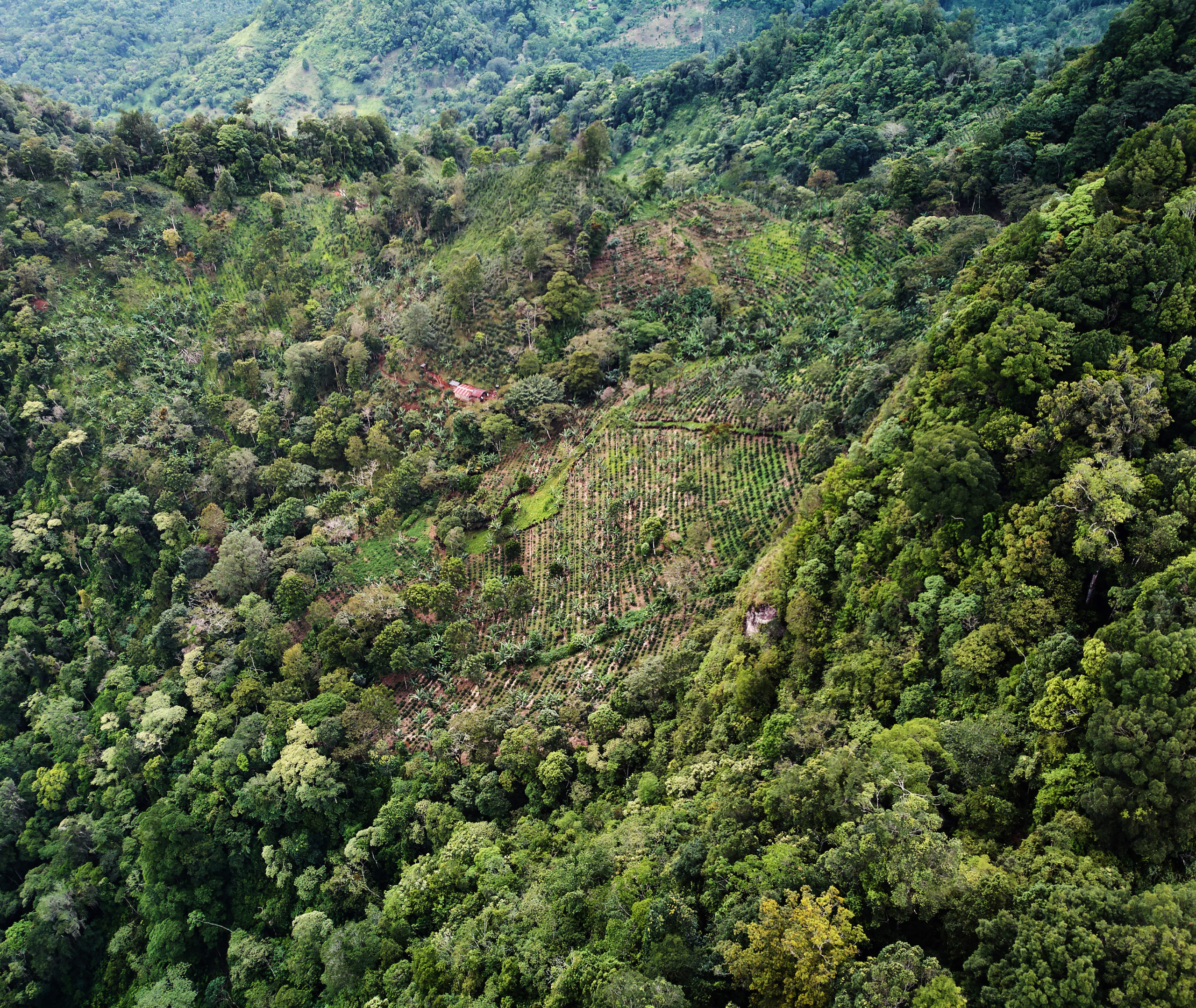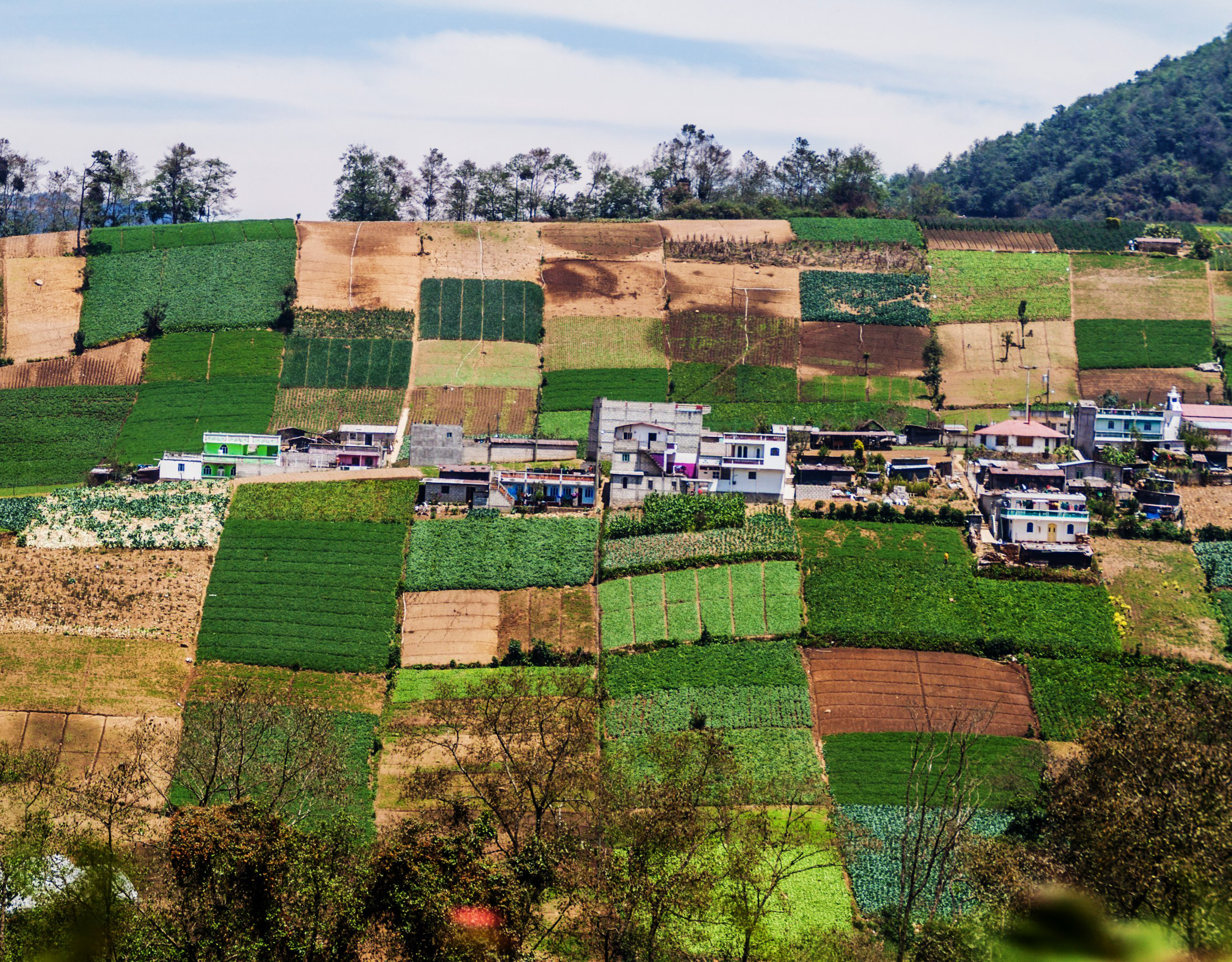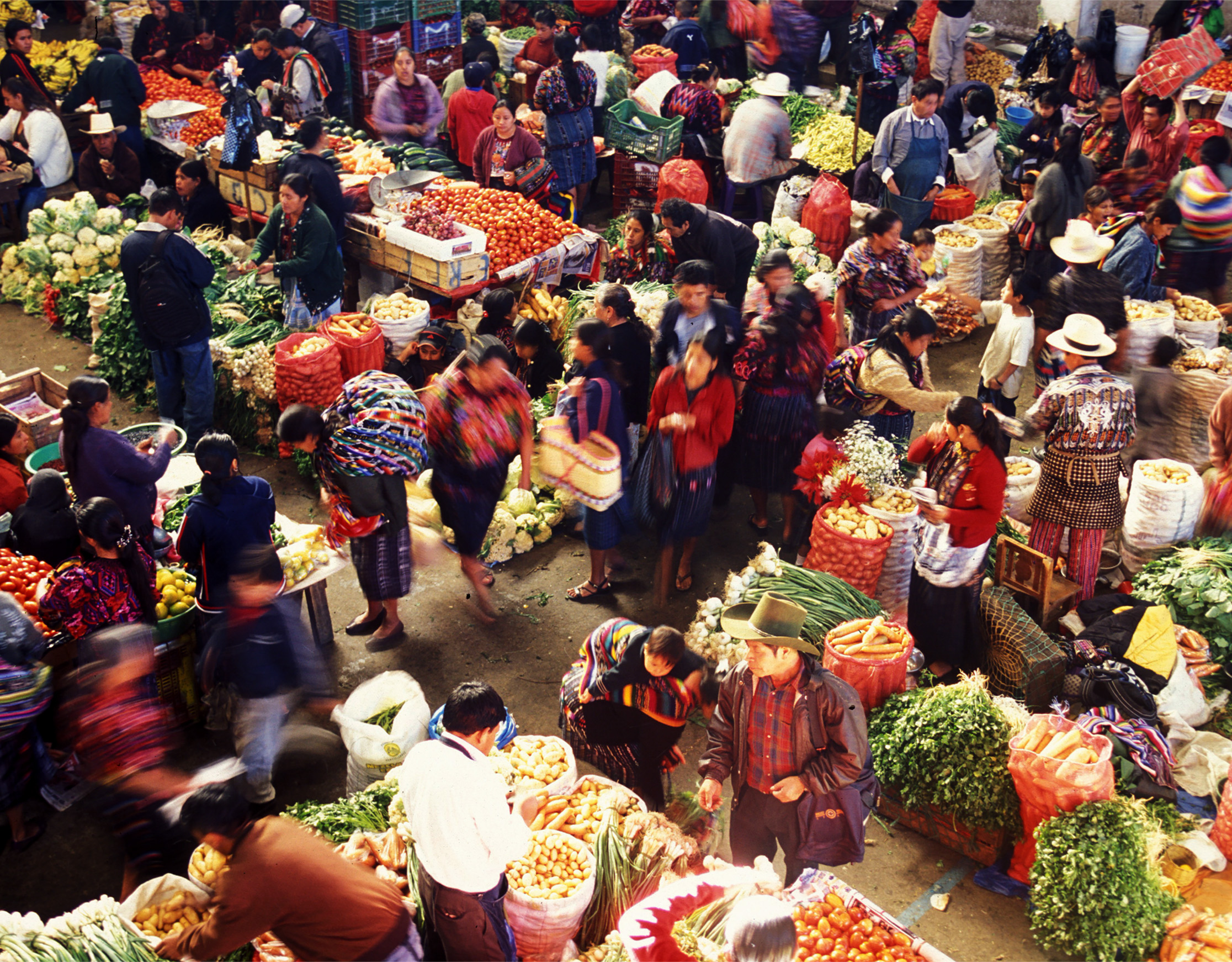The effects of climate change and volatile coffee prices contribute to an uncertain future for Guatemalan coffee farmers. Smallholder farmers typically adapt to this uncertainty by diversifying into other crops, such as fruit, tree nuts, and lumber. Because they are growing crops for their own consumption, this practice improves farmers’ food security, and it reduces their dependency on the unpredictable income from coffee (Gerlicz et al 2018).
Diversification is especially important for farmers who are unable to produce specialty coffee, whether due to conditions on the farm or because the farmers cannot access the market. However, for small-scale producers, finding a market for other products is difficult. Most of the non-coffee crops grown are typically consumed by the family members themselves; only a small portion of them are sold on local markets. On these farms, coffee remains the major source of income, which families need for clothing, schooling, and healthcare (Petchers and Harris, 2008).
Pictures: Diversification into different crops helps to protect farmers against volatile coffee prices, but finding a market for secondary crops can be difficult.
In lower-altitude regions, however, some farmers are moving away from coffee cultivation altogether. The conversion of coffee agroforests to other land uses means that important habitats for native biodiversity are being lost as a result (Haggar et al 2013).
Low market prices and limited access to fertilisers have prompted some farmers, motivated by the higher prices paid for organic coffee, to move towards organic farming (Eakin et al 2006). Other farmers have adopted Fair Trade certification as a way to protect their income in the face of low coffee prices. A study of coffee farmers in Costa Rica and Guatemala found that while Fair Trade can protect farmers against volatile prices, it does not benefit the poorest people in the coffee industry and may harm the interests of smallholder farmers in the long term (Haight 2007).
 Picture: Coffee agroforests are an important habitat for native biodiversity in Guatemala.
Picture: Coffee agroforests are an important habitat for native biodiversity in Guatemala.
On the other hand, evidence shows that the growth in the market for specialty coffee is benefiting some smallholders. Farmers who have suitable land for growing high-quality coffee and are able to access the specialty market are getting higher prices for their coffee than they would get from the cooperatives. The rise of specialty coffee has thus created opportunities for smallholder farmers in some of the poorest regions of Guatemala to boost their income (Fischer and Victor 2014). However, this shift towards selling into the specialty market has come at a cost to the traditional cooperatives, which can offer support and more stable coffee prices to the most vulnerable farmers (Fischer et al 2020).
There is evidence that a modest investment in infrastructure and support for smallholder farmers in Guatemala could greatly increase their yields, giving them more sustainable livelihoods. A study of farmers in Guatemala, Nicaragua, Honduras, and Vietnam found that while Guatemalan farmers were the most technically efficient among those studied, there was still potential to increase farmers’ profitability by giving them access to information and training on good agricultural practices (Salazar 2006).
Similarly, a project by Technoserve (2017) demonstrated the value of providing education to smallholder farmers. Many farmers in Guatemala have not had access to formalised training on agricultural practices, instead learning from family members or neighbouring farms. By training farmers in low-cost interventions such as pruning, mulching, and composting and giving them information about how to make the most efficient use of the fertilisers and pesticides they have access to, the project helped participants achieve a 45% increase in yield and a 35% increase in income from coffee.

